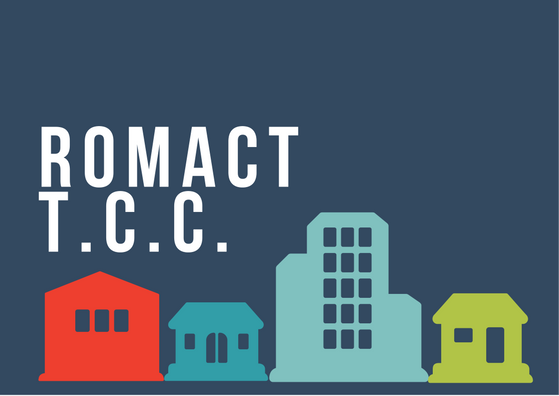First lessons and pathways to the future: the first ROMACT TCC networking meeting in Munich
Launched in 2016, ROMACT T.C.C. (ROMACT Transnational Cooperation Component) is a new component of the ROMACT Programme that focuses on the cooperation between municipalities from or to which movements of marginalised populations occur, with a focus on Roma.
A networking event took place in Munich on 15-16 December to exchange experiences and enhance cooperation between interested cities. The event gathered representatives of local authorities and mandated NGOs which benefited from the ROMACT TCC modules (intercultural training, training of mediators, and support for working visits) and potential applicants. The meeting allowed participants to network, share their practices and increase their knowledge on topics such as the organization of inclusion services for non-national marginalised populations, trust-building between local authorities and non-national Roma or the administrative culture in countries of origin.
New calls for proposals under this component will be launched in the beginning of 2017 and will be available in our newsfeed.
Programme
Transnational Cooperation and Capacity building for the inclusion of non-national Roma
First lessons and pathways for the future
15 December
13h30 - Opening session
Dominique Bé, Disability & Inclusion Unit, DG Employment, Social Affairs & Inclusion, European Commission
Ana Oprisan, ROMACT programme manager, Council of Europe
14h00- How ROMACT supports transnational cooperation, through a contact database and national support teams
Ana Oprisan, ROMACT programme manager, Council of Europe - Presentation
14h30- Workshop 1: How to organize inclusion services for non-national marginalised people, including Roma
Moderator: Dominique Bé, European Commission
Natasja Naegels, Civil integration service, City of Antwerp - Presentation
Gordon Smith, Development and Regeneration, City of Glasgow- Presentation
Teresa Woodhall, Head of Department, City of Goteborg - Presentation
14h30- Workshop 2: Better understanding the administrative culture in countries of origin
Moderator: Ana Oprisan, Council of Europe
Liliya Makaveeva, ROMACT national project officer, Bulgaria- Presentation
Florin Moisa, ROMACT national project officer, Romania - Presentation
16h30- Workshop 3: How to integrate intercultural mediators in local administrations
Moderator: Christoph Leucht, ROMACT trainer
Vital Marage, City of Andelecht - Presentation
Nadia Ianeva, Verein fuer Innere Mission, City of Bremen- Presentation
Anja Van den Durpel, International Relations and Networking, City of Ghent - Presentation
16h30- Workshop 4: How to address specific integration needs of Roma originating from the Western Balkans
Moderator: Marta Garcia Fidalgo, DG for Neighbourhood and Enlargement Negotiations, European Commission
Stefano Fumarulo, Head of Section “Security of Citizens, Migration Policies and Social Anti-Mafia”, Puglia region- Presentation
Jasmina Papa, UNDP - Presentation
16 December
9h30- Workshop 5: How to initiate fruitful contacts with local authorities in countries of origin
Moderator: Ana Oprisan, Council of Europe
Thomas Heimburger, City of Dortmund - Presentation (EN, DE)
Thomas Ott, Project Manager, ITD Monde, Lyon - Presentation
9h30- Workshop 6: Better understanding the socio-cultural specificities of Roma originating from the South East of Europe
Moderator: Dominique Bé, European Commission
Lisa Rose, ROMACT trainer - Presentation
11h15- Workshop 7: How to successfully develop first contacts into concrete cooperation projects
Moderator: Ana Oprisan, Council of Europe
Aurélien Dierckens, International programs coordinator, AFEJI, Lille - Presentation
Anniken Sand, Project manager, City of Oslo - Presentation
11h15- Workshop 8: How to create trust between local authorities and non-national Roma
Moderator: Christoph Leucht, ROMACT trainer
Heidrun Oberländer-Yilmaz, City of Duisburg - Presentation
Günter Blocks, Integration Centre, City of Essen - Presentation
12h30- Conclusions and next steps
Dominique Bé, Disability & Inclusion Unit, DG Employment, Social Affairs & Inclusion, European Commission
Ana Oprisan, ROMACT programme manager, Council of Europe

